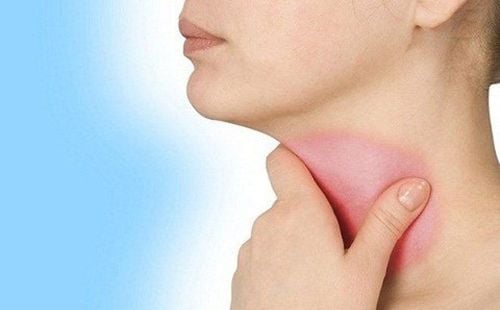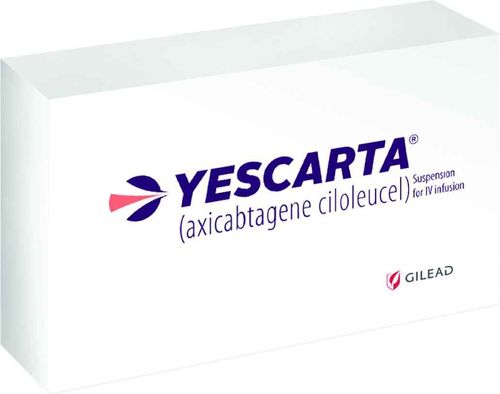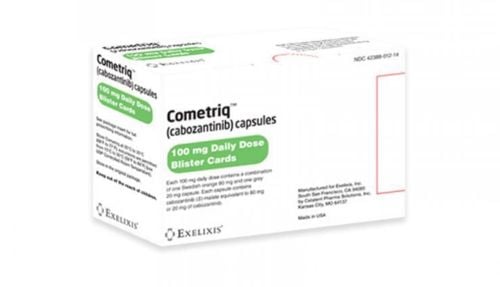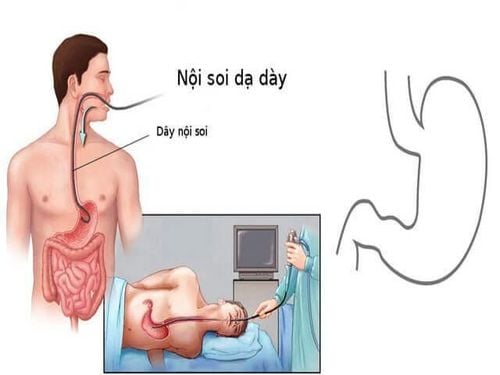This is an automatically translated article.
Esophageal cancer is common in Asia and occurs in the tube that runs from the throat to the stomach. Esophageal cancer is a malignancy with the fourth highest incidence among gastrointestinal cancers in Vietnam, after gastric cancer, liver cancer and colorectal cancer.1.Esophageal cancer Esophageal cancer is a disease in which malignant tumors have emerged from the epithelial cells of the esophagus, causing the cells to divide without the structure of the body, forming tumors. This is one of the common cancers in the gastrointestinal tract. With different disease manifestations in each stage, esophageal cancer is often difficult to detect in the early stages, often when the disease has progressed, the patient can be detected and treated.
Trắc nghiệm: Bạn biết gì về các yếu tố nguy cơ, chẩn đoán và điều trị ung thư tuyến tụy?
Ung thư tuyến tụy phổ biến thứ 10 trong những bệnh ung thư mới và là nguyên nhân thứ 4 gây tử vong do ung thư ở nam, nữ. Bài trắc nghiệm này sẽ kiểm tra kiến thức của bạn về các yếu tố nguy cơ, chẩn đoán và cách điều trị ung thư tuyến tụy.
Bài viết tham khảo nguồn: medicalnewstoday 2019
2. Causes of Esophageal Cancer Cancers originating in the esophagus include two main types of squamous cell carcinoma and adenocarcinoma, depending on the type of cell causing the cancer. Currently, science has not clearly determined what causes esophageal cancer, but can name the risk factors that lead to this disease as follows:
Abuse of stimulants such as alcohol, beer and tobacco People who are obese, people with esophageal diseases People with unscientific diets, abuse of fat, lack of vitamins A, B2, C; maintain the habit of eating a lot of foods containing nitrosamines... Some diseases are the basis for esophageal cancer to develop such as: nasopharyngeal cancer, small bowel disease, plantar keratosis .. The patient has a history of cancers in the head and neck area

3. Symptoms of Esophageal Cancer Some signs and symptoms of esophageal cancer are as follows:
The most common sign is a feeling of choking when swallowing, behind the breastbone when eating solid food, when eating solid food. As the disease progresses, patients who drink water and use liquids also have a feeling of choking. There are some cases, the disease is in the late stage, when the tumor necrosis in the lumen of the esophagus, after a while of choking on liquid food, they return to eating and drinking normally. Regurgitation: persistent bronchitis caused by fluid from the esophagus flowing into the airways leading to food being regurgitated when the patient sleeps. In addition to the above two basic signs, there are also some other tell-tale signs such as: producing more saliva than usual, hoarseness, prolonged cough, prominent wrinkles on the face and hands, rapid weight loss, and rapid weight loss. The cause is clear, the skin is dark and dry. When the body has the above signs, it is necessary to go to medical facilities to check the health, detect and treat the disease in time.
4. Routes of Transmission Esophageal Cancer Like other cancers, esophageal cancer is not contagious. This goes against the view of many people that esophageal cancer can be transmitted through the respiratory tract.

The majority of people with esophageal cancer are people with a history of alcohol and tobacco addiction. Because these preparations increase the harmful effects in the process of causing esophageal cancer. Patients with a history of: Barrett's esophagitis (persistent esophageal ulcer); diseases that cause mucosal necrosis (ingestion of acids or additives), patients who have had cancer in the neck... 6. Prevention of esophageal cancer To prevent esophageal cancer effectively As a result, first of all, it is necessary to limit the risk of disease with the following measures:
Minimize the abuse of stimulants, especially alcohol, tobacco Have a scientific lifestyle, a nutritious diet fully supplement vitamins, necessary nutrients for the body. For patients with a history of prolonged esophagitis, neck cancer, etc., it is necessary to visit a doctor regularly to promptly detect the disease. 7. Measures to diagnose Esophageal Cancer To promptly diagnose esophageal cancer, medicine currently has the following measures:
X-ray, esophagogastroduodenoscopy, biopsy to be able to see imaging abnormalities of the esophagus as well as cancerous tissues or abnormalities of the tissues leading to cancer or other lesions.
After being diagnosed with esophageal cancer, doctors will enter the stage to evaluate the cancer with the following 4 stages:
Esophageal cancer stage 1: cancerous cells are located in the upper layer end of the esophageal wall. Esophageal cancer stage 2: is when cancer cells have invaded to nearby lymphatics, but have not affected other parts of the body. Esophageal cancer stage 3: in the paraesophageal region, cancer cells have invaded tissue and lymph, affecting the deeper layer of the esophageal wall. Esophageal cancer stage 4: cancer cells have invaded other parts of the body such as liver, lungs, brain, bones. At this stage, it is necessary to use medical methods such as: computed tomography, bone scan, bronchoscopy to diagnose the disease.

8. Treatment measures for Esophageal Cancer Treatment for esophageal cancer depends on several factors such as: the size, spread of the tumor and the general condition of the patient. There are measures to treat esophageal cancer as follows:
Surgery is the main measure. Through the surgical method, the tumor will be removed along with part or all of the esophagus, paraplegia and other tissues in the region. Radiation therapy uses high-energy rays to destroy cancer cells. This method can be used alone or in combination with chemotherapy as an initial treatment for surgery, especially when the tumor is large and in locations that are not suitable for surgery. Chemotherapy: is the use of anti-tumor chemicals to destroy cancer cells. The chemotherapy will be administered intravenously and circulated throughout the body. Laser treatment: is a method that uses high-energy light to destroy cancer cells, destroy cancer organizations and release blocked areas of esophageal cancer. Photodynamic therapy: through some drugs that are absorbed mainly by cancer cells to treat the disease. Autologous immunotherapy: This is a breakthrough solution in the treatment of cancer - including esophageal cancer. Vinmec is the first hospital in Vietnam to implement this therapy.
Please dial HOTLINE for more information or register for an appointment HERE. Download MyVinmec app to make appointments faster and to manage your bookings easily.
SEE MOREVinmec successful endoscopy for complex esophageal cancer Treatment of esophageal cancer Benign esophageal cancer: Causes, symptoms, diagnosis and treatment













